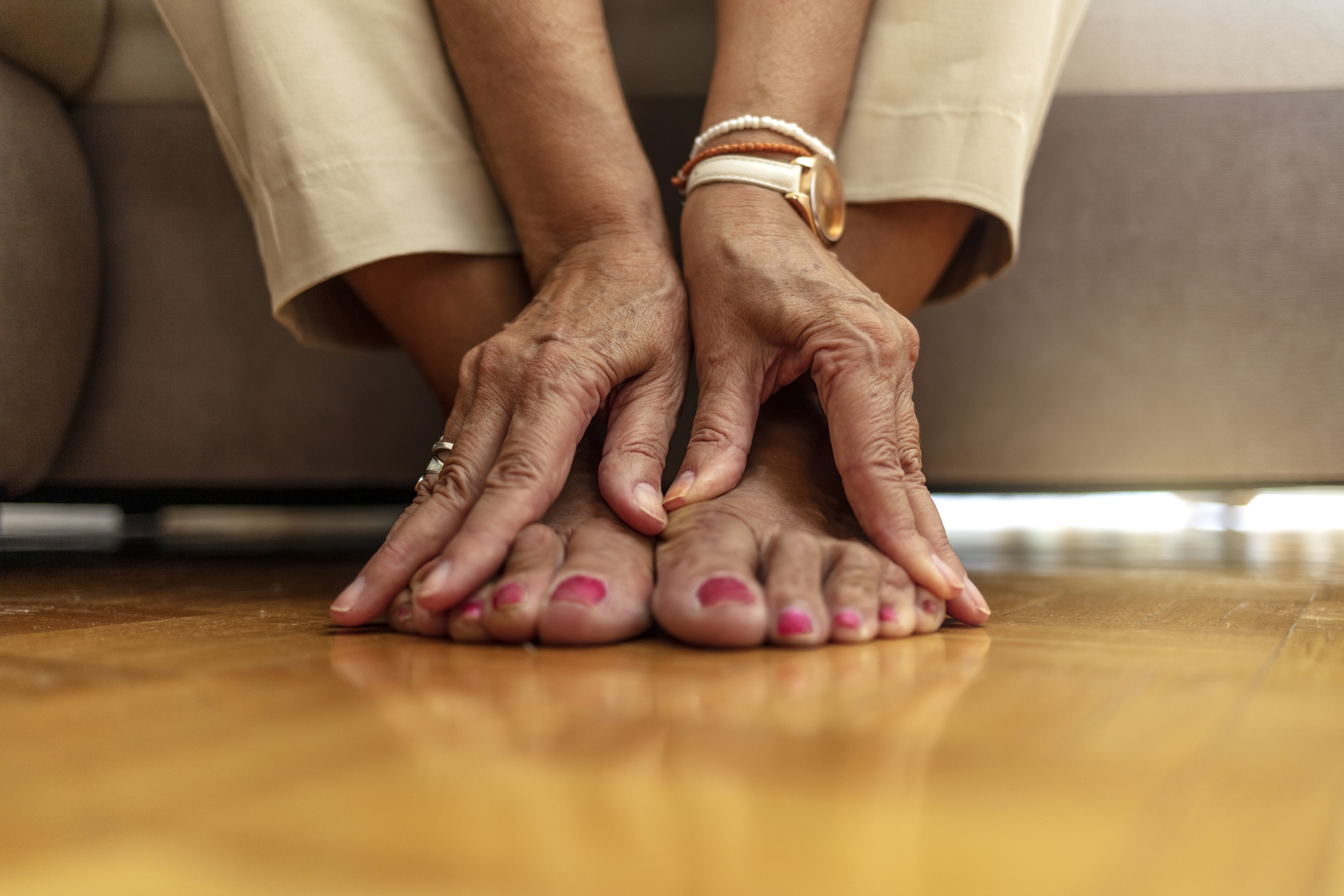
Improving foot health for seniors is an important step, and our experts in senior home care in Portland can help.
It is hard to put your best foot forward when pain happens with every step. Foot problems are normal as we grow older, which is understandable; there are so many delicate bones that hold our bodies’ weight. Also, because they’re far away from the heart, our feet may not be receiving the amount of oxygen-rich blood required to remain healthy – specifically if a health concern like diabetes restricts blood circulation to the feet.
Foot health for seniors is vitally important, yet many seniors prefer to just grin (or grit their teeth) and bear it, rather than seeking assistance for sore feet. This may result in not merely growing discomfort, but compromised mobility and balance problems. Problems with your feet may also be a red flag for other health conditions that need diagnosis and treatment.
Watch for These Common Senior Foot Issues
Our experts help older adults with a number of foot issues. Foot pain might result from:
- Dry skin. Throughout the cold winter season, dry skin is prevalent. On the feet, it can cause cracks which are not only painful, but set the stage for infection.
- Calluses and corns. These dense patches of dead skin on the feet often develop from the friction from shoes that fit poorly.
- Bunions. In contrast to corns and calluses, bunions are the consequence of changes to bone structure. They are often incredibly painful, usually occurring on the outer part of the big toe joint.
- Hammertoes. Instead of all the toes lying flat, hammertoes are misshapen and point upward. You might see a corn along with the deformed toe.
- Arthritis. Arthritis can strike any of our joints, including the feet, generating both mobility issues and pain.
- Plantar fasciitis. Plantar fasciitis is a result of bony growths formed when a ligament on the heel becomes swollen. Walking and also simply standing could be extremely painful with this condition.
- Ingrown toenails. Toenails that grow at a different angle than usual can become ingrown in the skin of the toe, often requiring a surgical procedure to eliminate.
- Fungal infections. Wet feet make an excellent breeding ground for fungus, which can develop between the toes.
Dr. Said Atway, clinical professor of podiatry at The Ohio State University Wexner Medical Center, sees seniors dealing with these kinds of problems on both ends of the spectrum: either highly active and developing problems from overuse, in addition to people that have an inactive lifestyle dealing with limited blood flow to the feet and poor overall health. He emphasizes the importance of proper shoes for older adults, who should try to avoid going barefoot or wearing shoes that lack support, such as sandals.
To find the most comfortable, best-fitting shoes, he suggests:
- Shoe shopping later in the day, as gravity causes the feet to swell a little during the day
- Trying out shoes by walking around in them for at least 20 minutes; giving them a test run on a carpeted area at home should avoid any wear on the soles of the shoes, so they can be returned if uncomfortable
- Seeking the advice of a podiatrist on the best style of shoe for an older adult’s unique concerns
Keeping the feet clean, moisturized, and dry, and doing daily inspections to check for issues, is recommended for all older adults. An annual visit to the podiatrist can also help prevent problems.
Looking to improve foot health for seniors in your life? Anthem Home Care, a provider of senior home care in Portland, TX and nearby areas, is here to help older adults kick up their heels in a variety of ways: ensuring good foot hygiene, providing transportation to shop for footwear or to the podiatrist, taking walks together to boost blood flow, and much more! Reach out to us at 361-643-2323 for a complimentary in-home assessment today.
